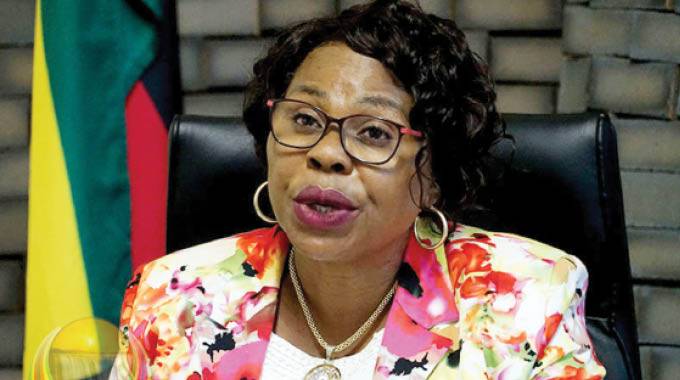Luveve deaths caused by water shedding, pipes

Mashudu Netsianda and Nqobile Tshili, Chronicle Reporters
GOVERNMENT has attributed Bulawayo’s diarrhoea outbreak in Luveve and surrounding suburbs that has killed nine people to water shedding and vandalism of pipes, and released an additional $7.4 million for the drilling of 10 boreholes in the city.
In April, Government released $10.6 million to the Zimbabwe National Water Authority (Zinwa) towards the rehabilitation of 15 boreholes at the Nyamandlovu Aquifer to increase Bulawayo’s water supply.
Briefing journalists on the 21st Cabinet meeting decision matrix in Harare last night, Information, Publicity and Broadcasting Services Minister Monica Mutsvangwa said a total of 1 500 suspected gastrointestinal disease cases had been attended to by June 21 with nine deaths recorded.
The outbreak is attributed to the 144-hour water shedding regime and vandalism of outflow sewers and dilapidated pipes, some of which have outlived their lifespan.
The minister said in response to the gastrointestinal disease, four treatment centres have been set up and rapid response teams are on the ground doing inspections to determine the extent of the outbreak.
Government last week set up a technical team to investigate the diarrhoea outbreak while deploying army doctors to complement the city’s health services department in treating patients.
The Environmental Management Agency (EMA) is leading the technical committee.
To contain the disease outbreak, on Monday last week, council initiated a door-to-door campaign to identify diarrhoea patients and offered free medical treatment.
Cabinet has directed Treasury to immediately avail financial resources in order to contain the outbreak and address the water challenges in Bulawayo.
Plans are also underway to increase the supply of raw water to the city of Bulawayo through pumping of water from Mtshabezi, Insiza, Inyankuni dams as well as Epping Forest and Rochester Aquifers. Bulawayo City Council recently increased to five days the weekly water shedding programme as it takes drastic measures to save water.

Minister Monica Mutsvangwa
Some of the measures being instituted include water mains renewal, de-chocking of small diameter sewer lines within the household network and weekly water quality sampling.
Minister Mutsvangwa said the water situation in Harare and Bulawayo remains depressed with borehole drilling and rehabilitation being undertaken in both cities to augment the water supplies.
To improve the health and sanitation situation in prisons and correctional services centres, a further six boreholes were drilled at Chikurubi in Harare
All district, provincial and infectious disease hospitals are now able to admit patients with mild to moderate symptoms of Covid-19 and cannot self-isolate in their homes.
“The Ministry of Health and Child Care will conduct a three-week survey beginning 29 June to determine the level of Covid-19 infection in our populace. The exercise will entail national cross sectional sero-epidemiological survey in the estimated sample size of about 2 000 households (average size of five members per household) across the nation,” said Minister Mutsvangwa.
The minister said having received representations on the high regulatory costs for licensing medicines and on the approval processes for medicines used in Zimbabwe from the Medicines Control Authority of Zimbabwe (MCAZ) and the Medical Research Council of Zimbabwe (MRCZ), Cabinet resolved to waive the requisite regulatory fees for the licensing of traditional medicines for Covid-19 projects.
Concerning the reopening of schools and the June 2020 examinations, Minister Mutsvangwa said preparations are on course. Schools have made adequate masks for use during the examination period.
“The Ministry of Primary and Secondary Education is ensuring adherence to the High Court Ruling which compels the Ministry to put in place all the necessary measures at all examination centres by 26 June, 2020 in order to safeguard the health and safety of learners, teachers and ancillary staff,” she said.
She said universities have donated 10 000 litres of sanitisers, which are enough for use by the 800 examination centres throughout the country. Treasury has availed funding for the drilling of boreholes and purchase of infrared thermometers.
Minister Mutsvangwa said due to the high demand for passports, Government will avail the necessary funding to enable the Ministry of Home Affairs and Cultural Heritage to resume the processing of passports for Zimbabweans, including those in the Diaspora.
She said under the cash transfers to the informal sector members affected by Covid-19, the Ministry of Public Service, Labour and Social Welfare has paid cushioning allowances to a total of 197 000 people. The target is to reach one million beneficiaries. — @mashets-@nqotshili












Comments